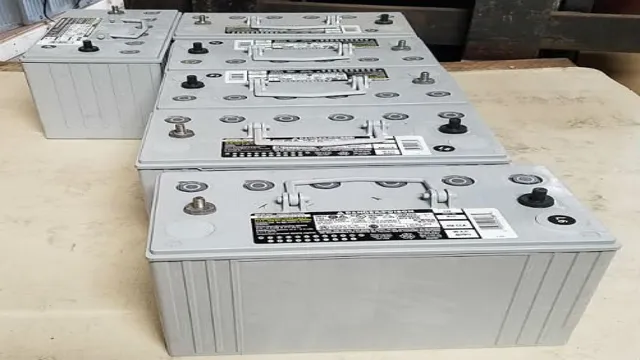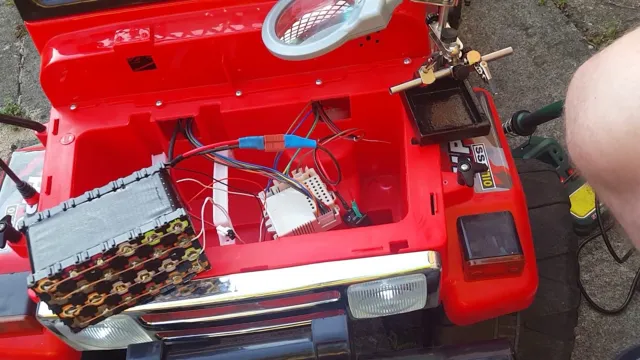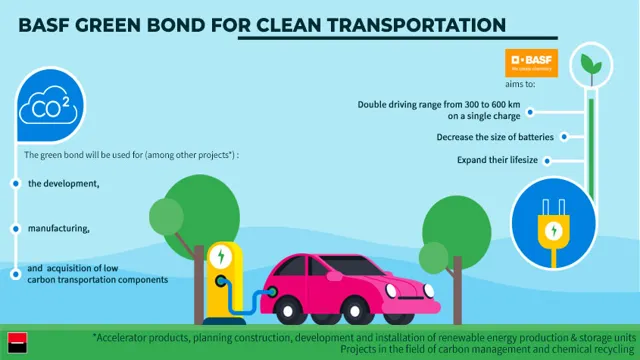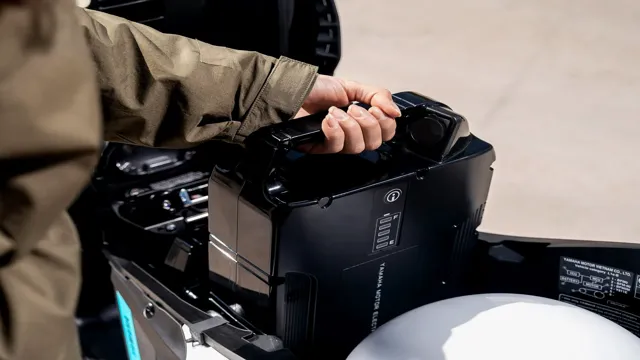Electric Car Battery Materials: A Deep Dive into the Mining Process
As the world transitions towards sustainable energy, electric cars have become a popular alternative to traditional gasoline-powered vehicles. However, the production of electric car batteries requires an array of materials that pose significant environmental and social challenges, including mining. The extraction of metals such as lithium, cobalt, and nickel required for electric car batteries carries significant environmental impacts that cannot be dismissed.
It’s important to understand the impact and challenges that come with mining electric car battery materials to realize the importance of sustainable sourcing and manufacturing methods. In this blog, we’ll delve into the environmental and social impact of mining electric car battery materials and explore the challenges that need addressing to realize a sustainable future.
Materials Used in Electric Car Batteries
Mining of electric car battery materials has become an increasingly popular topic, as the growth of the electric vehicle industry continues to boom. Two of the most commonly used materials in electric car batteries are lithium and cobalt; both of which are primarily mined in developing countries such as the Democratic Republic of Congo. Mining these materials can have significant environmental impacts, including deforestation and water pollution.
Additionally, the widespread demand for these materials has led to concerns around human rights violations and child labor in the mining industry. While efforts are being made to improve the sustainability and ethical practices of electric car battery material mining, it is important for consumers to be aware of the impact of their purchasing decisions and consider the long-term sustainability of electric car battery production.
Lithium Mining and Its Challenges
“lithium mining” Electric cars have become increasingly popular in recent years, as people strive to reduce their carbon footprint and protect the environment. However, the batteries used in electric cars require specific materials, including lithium. Lithium is a versatile metal that is extracted from deposits found in various parts of the world.
While it is a crucial component of electric car batteries, lithium mining poses several challenges. For starters, lithium deposits are not evenly distributed, and many countries have yet to embrace lithium mining. Additionally, lithium mining can cause environmental damage, including soil and water pollution.
Therefore, researchers are constantly looking for ways to improve lithium mining techniques and minimize their environmental impact. It’s important to remember that while electric cars may be better for the environment, the materials used to make them still have consequences.

Cobalt Mining and Its Human Rights Concerns
Electric car batteries have revolutionized the automotive industry, but there is a dark side to their production. Cobalt, a key component in these batteries, has been linked to human rights abuses in mining operations. Most of the world’s cobalt comes from the Democratic Republic of Congo, where child labor and unsafe working conditions are prevalent.
The demand for cobalt has increased sharply with the rise of electric cars, exacerbating these issues. Although efforts have been made to improve the situation, such as implementing voluntary codes of conduct, the problem persists. As consumers, it is important to be aware of the human rights concerns associated with electric car batteries and to support companies that prioritize ethical sourcing practices.
By doing so, we can help ensure that the production of clean energy technology does not come at the cost of human suffering.
Alternative Battery Materials
Electric car manufacturers are actively seeking alternative battery materials that can reduce reliance on traditional materials such as lithium and cobalt, which require extensive mining and can have harmful environmental impacts. One promising alternative material is graphene, a carbon-based material that has exceptional electrical conductivity and strength. Graphene-based batteries could greatly improve the performance of electric vehicles, as they offer faster charging times and increased energy density.
Other alternative battery materials being explored include sodium-ion, aluminum-ion, and zinc-air batteries. However, as with any emerging technology, further research is necessary to determine the viability and scalability of these alternatives. Despite the challenges that alternative battery materials may present, the push for sustainable and ethical sourcing of materials in the electric vehicle industry represents a significant step forward in reducing the environmental impact of transportation.
Solid-State Batteries: A Promising Alternative
Solid-state batteries are becoming an increasingly promising alternative to traditional Lithium-ion batteries due to their safety, efficiency, and stability. Instead of using a liquid electrolyte, these batteries use a solid material, which makes them less volatile and more resistant to overheating. This not only reduces the risk of explosion and fires but also extends their lifespan.
These batteries are also highly efficient, allowing more energy to be stored and transferred more quickly than other types of batteries. As demand for electric vehicles and renewable energy storage solutions continues to grow, solid-state batteries are emerging as a transformative technology that could help revolutionize the industry. With advancements in materials science and manufacturing techniques, it is expected that we will see more of these batteries in the near future.
Graphene and Other Emerging Materials
Alternative Battery Materials One of the most exciting fields in materials science is the search for alternative battery materials, with graphene at the forefront of the list. Known for its incredibly high conductivity, graphene is a perfect candidate to replace traditional lithium-ion batteries, which have limitations in terms of energy capacity and charging speeds. Graphene can help overcome these limitations with its ability to store more energy and charge faster.
Other emerging materials being studied for possible use in alternative batteries include sodium-ion batteries and solid-state batteries. Sodium-ion batteries are cheaper and more abundant, making them an attractive alternative to lithium-ion batteries. Solid-state batteries, on the other hand, eliminate the risk of leakage and the need for a liquid electrolyte, resulting in a safer and more stable battery.
The possibilities for these alternative battery materials are vast, from powering electric vehicles to storing renewable energy. With the increasing demand for sustainable energy solutions, research in this field is more important than ever. While there are still challenges to overcome, the potential benefits of these materials cannot be ignored.
It is an exciting time for materials science, and the development of alternative battery materials could have a significant impact on our future.
Recycling and Reusing Batteries
Alternative Battery Materials As demand for batteries continues to grow, it’s important to consider alternative materials that can reduce the environmental impact of these products. Traditional alkaline batteries are typically made with materials like cadmium, mercury, and lead, which can be harmful to the environment and difficult to recycle. However, alternative materials like lithium-ion, nickel-metal hydride, and zinc-carbon can offer a more sustainable solution.
Lithium-ion batteries, for example, are rechargeable and can power everything from smartphones to electric vehicles. Nickel-metal hydride batteries, on the other hand, can be used in hybrid vehicles and have a longer lifespan than traditional batteries. Zinc-carbon batteries are a low-cost option that doesn’t contain toxic heavy metals and can be recycled more easily than alkaline batteries.
As more companies prioritize sustainability, we can expect to see a shift towards alternative battery materials that offer a more environmentally friendly solution.
Environmental Impacts of Electric Car Battery Material Mining
Electric car battery material mining has significant impacts on the environment. Extraction of minerals such as lithium, cobalt, nickel, and manganese required for electric vehicle batteries can result in soil and water contamination, deforestation, and habitat destruction. Mining activities also consume enormous amounts of energy, contributing to a significant amount of carbon emissions.
Moreover, the disposal of used batteries, which contain toxic and hazardous materials, poses a threat to both human health and the environment. Despite the challenges, the renewable energy industry is working to reduce the environmental impact of electric car battery material mining using innovative techniques such as recycling and sourcing materials from sustainable mines.
Deforestation, Water Pollution, and Other Environmental Consequences
Electric car battery production has the potential to cause significant environmental damage due to the extraction of materials like lithium, cobalt, nickel, and manganese. Mining operations for these materials are often linked to deforestation, water pollution, and other environmental consequences. For example, lithium mining in South America has led to deforestation and water scarcity in the region.
Cobalt mining in the Democratic Republic of Congo has been associated with child labor, human rights abuses, and environmental degradation. At the same time, recycling of batteries can greatly reduce the environmental impact of electric car battery production. Companies like Tesla are working to make their battery production more sustainable, and advances in technology may lead to more efficient and eco-friendly mining methods in the future.
Overall, while there are certainly environmental consequences associated with electric car battery production, there are also opportunities to mitigate these impacts and develop more sustainable practices in the industry.
Efforts to Make Battery Material Mining More Sustainable
As electric cars become more popular, concerns about the sustainability of the mining process for battery materials are growing. The mining of materials like lithium, cobalt, and nickel can have significant environmental impacts, including deforestation, water pollution, and soil degradation. However, efforts are being made to make the mining process more sustainable.
For example, some companies are exploring the use of low-impact mining techniques like solar evaporation, which involves using the power of the sun to extract lithium from salt flats. Additionally, other companies are working to create more efficient recycling processes, which could reduce the need for new mining operations. While there is still much work to be done, these initiatives are promising steps towards a more sustainable future for electric car batteries.
Conclusion: The Importance of Sustainable Battery Material Mining
In conclusion, mining for electric car battery materials may seem daunting, but it’s a necessary step towards creating a sustainable future. It’s like digging for gold, except instead of riches, we’re mining for a cleaner, greener world. And just like prospectors of old, we must be mindful of the impact our mining has on the environment.
So let’s dig deep, but let’s do it responsibly and with a commitment to sustainability. After all, the power in our cars should come from a clean source, not a dirty mine.”
FAQs
What materials are used in electric car batteries?
Electric car batteries are typically made up of materials such as lithium, cobalt, nickel, and manganese.
Is the mining process for these materials environmentally friendly?
The mining process for these materials can have negative environmental impacts such as soil and water pollution, habitat destruction, and deforestation.
Are there any alternatives to the traditional materials used in electric car batteries?
Yes, some companies are exploring the use of alternative materials such as sodium-ion batteries, solid-state batteries, and even hydrogen fuel cells.
How can we ensure responsible mining practices for these materials?
Increasing demand for electric car batteries puts pressure on mining companies to find responsible and sustainable practices. As consumers, we can also prioritize purchasing products from companies that prioritize responsible mining practices and transparency in their supply chain.





